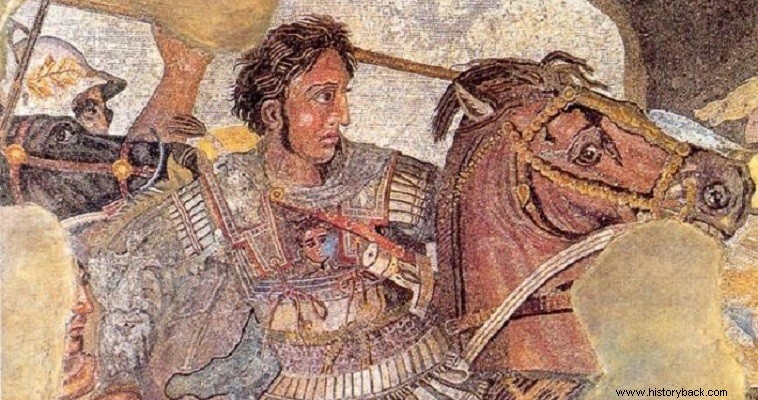
A major new book by Canadian historian Timothy Weingard of Colorado's MESA University, Mosquito:A Human History of Our Deadliest Predator (Dutton Publications 2019), details the often hidden but profound impact that have had in human history the various diseases carried by mosquitoes. It is estimated that these have killed more people in world history than any other single cause.
Winegard claims that infected mosquitoes have killed about 52 billion people, almost half of all people who have ever lived on Earth! That's why he calls mosquitoes "our top predator", "the destroyer of worlds" and "the supreme agent of historical change".
The ancient Greeks and Romans were dying by the thousands because of mosquitoes, and Hippocrates was trying to provide an explanation and find a cure for their contagious diseases. But it was not until the end of the 19th century that it was scientifically confirmed that mosquitoes were behind diseases such as malaria. Until then most people thought there was something wrong with the air around them.
Mosquitoes stopped conquerors?
It is said that a major reason why Alexander the Great's victorious army had to stop its campaign as far away as India was its decimation by malaria carried by infected mosquitoes. It was not only Alexander the Great, but also Jeghis Khan, whose Mongols were also decimated on the Hungarian plains when the wet conditions of 1241 had multiplied malarial mosquitoes. Somehow, Southern Europe was saved from the Mongol invasion. A similar "fiasco" later befell Kublai Khan's grandson during his invasion of South China and Vietnam, while mosquitoes also played a decisive role in the final collapse of the ancient Khmer civilization in Cambodia.
Much earlier, 40,000 Roman soldiers had died from infected mosquitoes when they tried - ultimately in vain - to expand their empire into Scotland. But later the mosquitoes saved the Romans, when they slaughtered the army of Hannibal, who had invaded Italy. Wealthy Romans had acquired the habit of building their homes high on hills to avoid mosquitoes, a habit that has persisted through the centuries to this day.
In the Middle Ages mosquito diseases killed about a third of the European Crusaders who had invaded the "holy" Middle East. The most dramatic mosquito-assisted conquest was undoubtedly that of the New World by the successors of Columbus, who brought with them on their ships the mosquitoes and their diseases, to which the natives had no immunity.
Until then in America there were many mosquitoes, but they were not carriers of infectious diseases. The mass deaths of the Aztecs and other civilizations from mosquito-borne diseases were largely "invisible" to the eyes of the invading Spaniards, leading to the myth of the "vacant" continent.
A few centuries later, at the end of the 16th and the beginning of the 17th century, mosquitoes and their contagious diseases put a "brake" on the colonization of Central Africa by European colonialists, while the famous English captain and slave trader Sir Francis Drake was one of the victims of mosquitoes and malaria in 1596. Meanwhile, the slave trade and the first African slaves brought even more mosquitoes, vermin and death to the New World (among other things, the first European settlers in the Americas and the Caribbean were decimated).
United Britain!
In 1698 a failed five-ship expedition of the Scottish Company to Panama, which ended in utter disaster due to yellow fever and malaria transmitted by mosquitoes to Scottish settlers and traders, had an unexpected consequence:because of the enormous debt accumulated by the Scots after their transatlantic failure, were forced to accept union with England. After all, mosquitoes probably had a hand in the creation of Great Britain!
Later, mosquitoes helped the Americans win their independence by making life difficult for the English army that had come from Europe, while something similar happened to the Latin American revolutionaries in their struggle for independence against the Spanish. From Saladin against the Crusaders to Napoleon and the Nazis, various generals had the idea of using mosquitoes as a weapon against their opponents.
In the 20th century, DDT became a key weapon against mosquitoes and to combat malaria in various parts of the world, but not in Africa itself, where the climate favors the breeding and spread of mosquitoes and their diseases. More recently, mosquitoes have been carrying other diseases to the West, such as the West Nile virus, which e.g. invaded New York in 1999 with the help of mosquitoes.
In the meantime, according to the "New Yorker" and "Science", new insecticides replaced DDT, while in our time scientists are developing new biological weapons (e.g. genetic modification of mosquitoes), as well as vaccines. The aim is no longer so much to exterminate the mosquitoes themselves, which is by no means easy, but to reduce their ability to carry viruses and parasites and, at the same time, to have more effective drugs for either prevention or treatment.
Despite this, mosquitoes continue to kill over 800,000 people each year, mostly in Africa. Globalization, which facilitates travel and cross-border trade, plays a key role, expanding the effects of mosquitoes far beyond the tropics and bringing various communicable diseases (eg, dengue, chikungunya, Zika) to the fore.
At the same time, climate change is expanding the range of mosquitoes to increasingly northern latitudes. A recent study estimates that within the next few years a billion more people will have been exposed to mosquito-borne diseases.
SOURCE:APE-ME
